TL;DR#
GNOME is a desktop environment (DE) designed to make it simple and easy to use.
I’ve been using GNOME as my DE for more than 5 years. GNOME with the default settings is already robust and ready to use. but with the addition of extensions, GNOME becomes even more powerful and elegant.
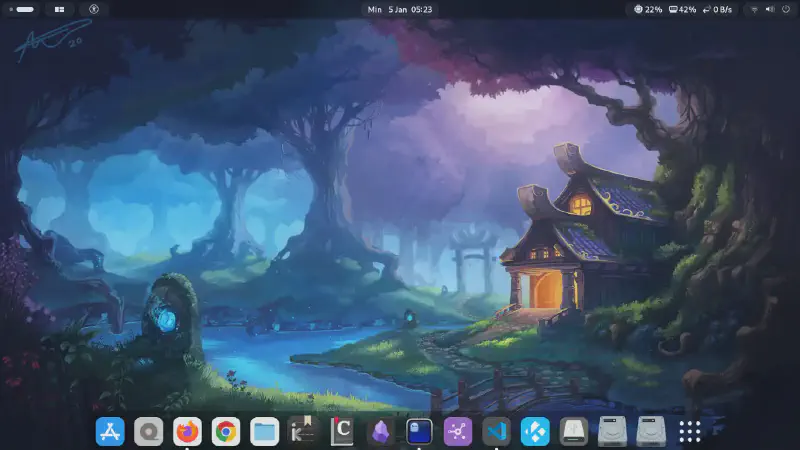
Prerequisites#
- Install GNOME extensions
Debian based (Debian, Ubuntu, … etc)
sudo apt install gnome-shell-extensions gnome-tweaksRHEL based (RedHat, Fedora, … etc)
sudo dnf install gnome-shell gnome-tweaks
To easily manage and install extensions, install the GNOME Extension Manager via Flathub:
flatpak install flathub com.mattjakeman.ExtensionManager
Extensions I’ve Installed#
ArcMenu by andrew_z
Provides various menu layouts, built-in GNOME search, quick access to system shortcuts, and much more!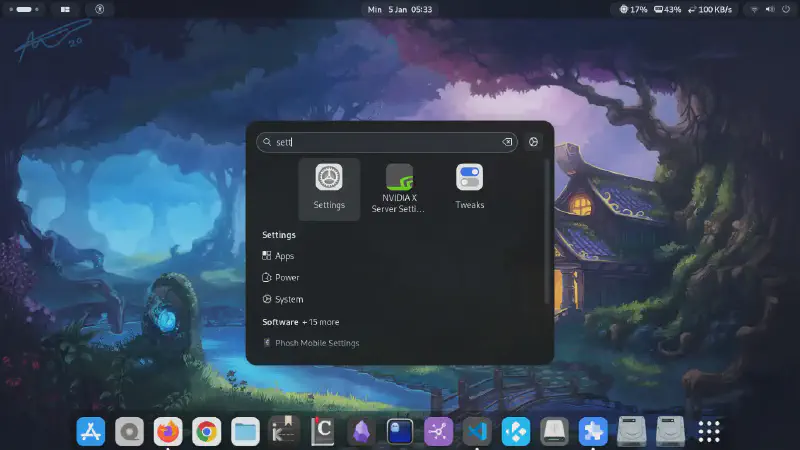
Blur my Shell by aunetx
Adds a blur look to different parts of the GNOME Shell, including the top panel, dash and overview.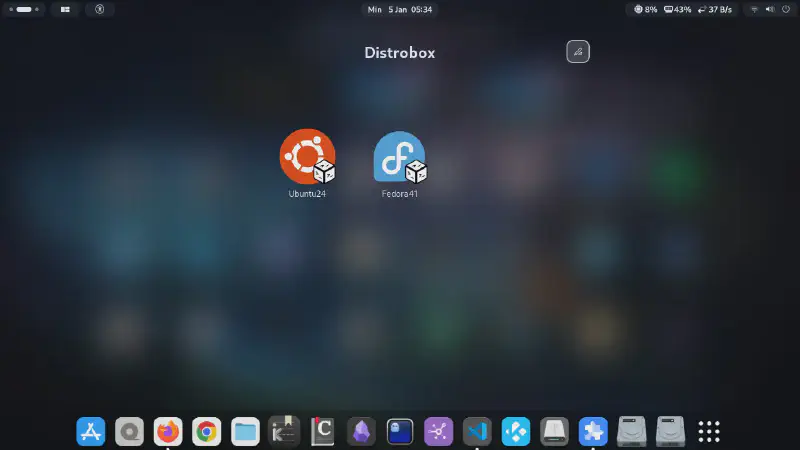
Dash2Dock Animated by icedman
An Animated & Effectful Dock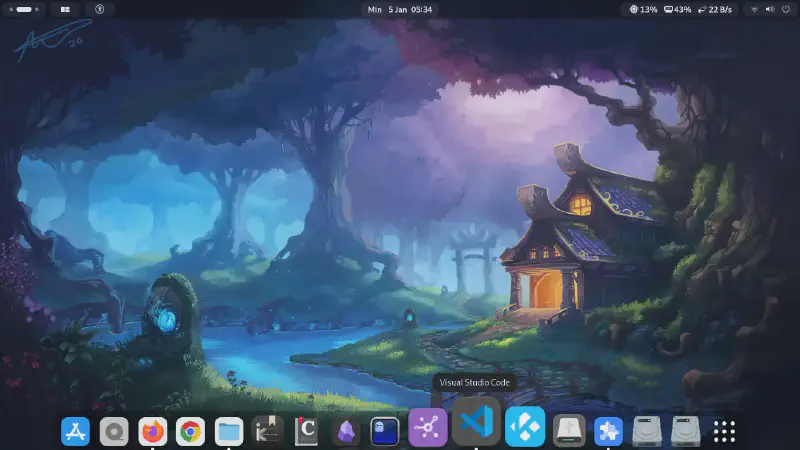
Just Perfection by JustPerfection
A Tweak Tool to Customize GNOME Shell, Change the Behavior and Disable UI Elements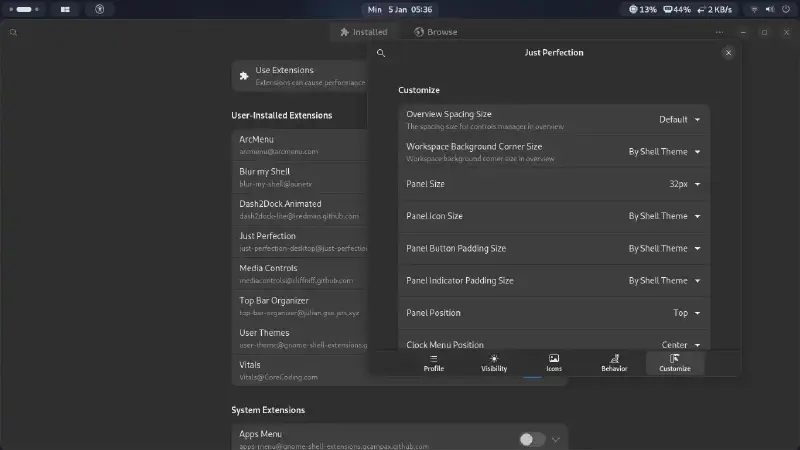
Media Controls by Sakith B.
Displays controls and information for the currently playing media in the panel.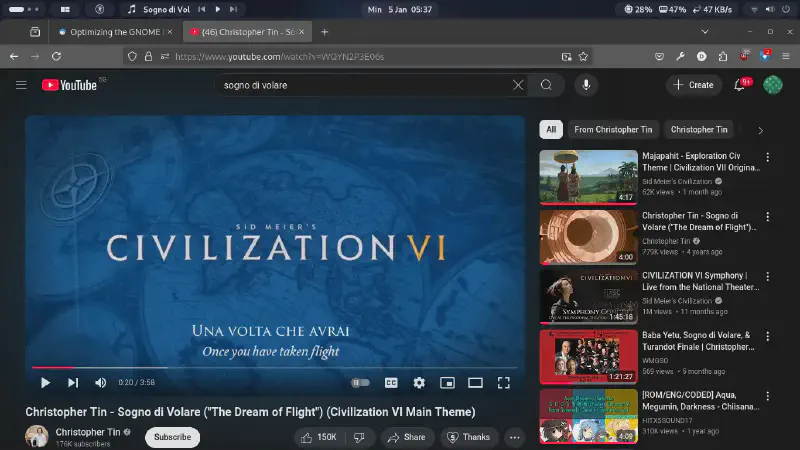
Top Bar Organizer by June
Organize the items of the top (menu)bar.
User Themes by fmuellner
Load shell themes from user directory.
Vitals by corecoding
Provides a glance at your computer’s temperature, voltage, fan speed, memory usage, processor load, system resources, network speed, and storage stats.
Pop Shell by system76.com Automatically tiles windows.

GNOME Pomodoro by gnomepomodoro.org
A simple and effective Pomodoro timer for GNOME Shell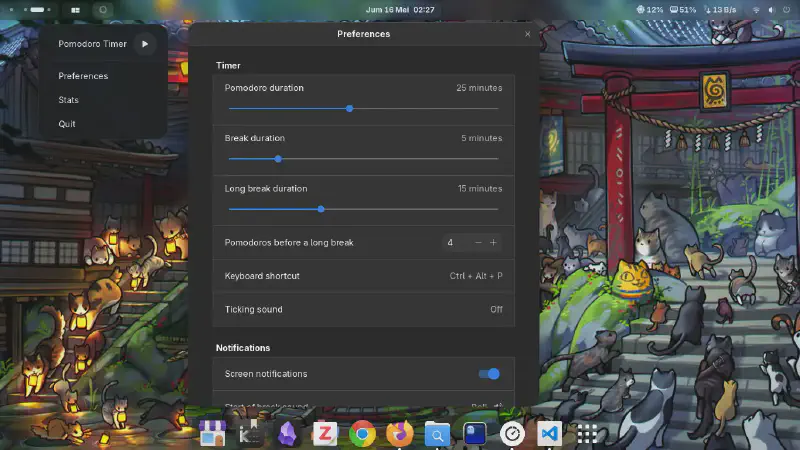
Manage gnome extension with Extension Manager#
Extension is A utility for browsing and installing GNOME Shell Extensions.
- Installing an extension: To install, simply search for the extension by name and click install.
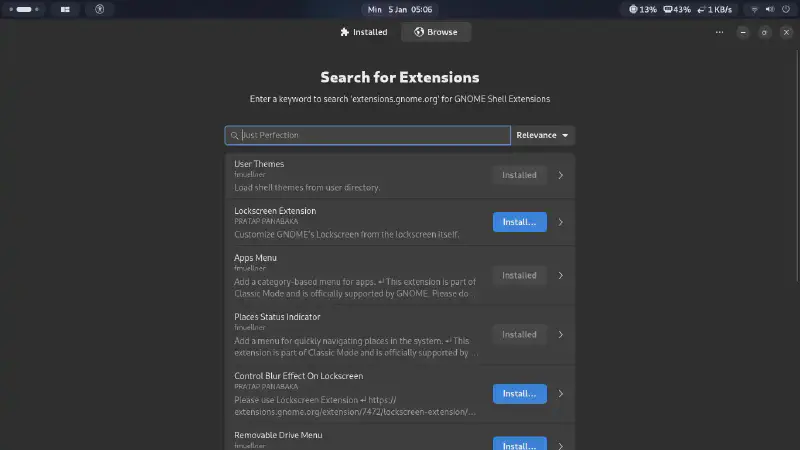
- Enabling or disabling an extension: Toggle the blue button next to the extension name to enable or disable it.
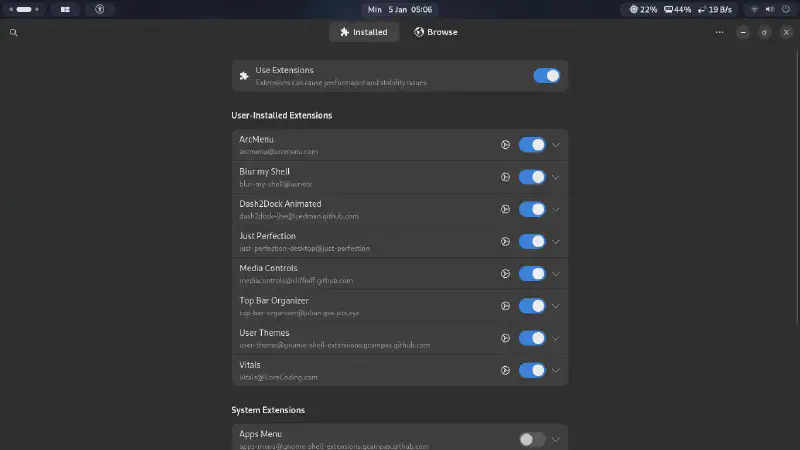
- Removing an extension: To remove an extension, select it and click remove.
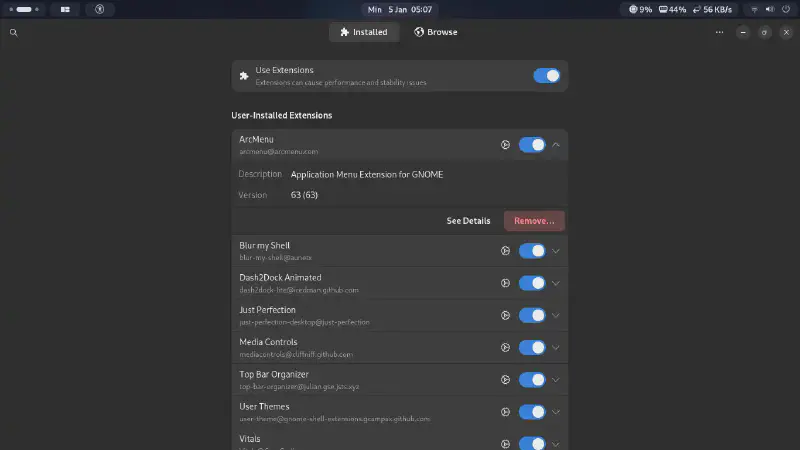
Notes#
Got an incompatible extension? Fix it here.
All extensions I’ve installed can be managed through the Extension Manager, except for Pop Shell and GNOME Pomodoro. To install them:
Gnome Pomodoro#
Debian based (Debian, Ubuntu, … etc)
sudo apt install gnome-shell-pomodoroRHEL based (RedHat, Fedora, … etc)
sudo dnf install gnome-pomodoro
Pop Shell#
Debian based (Debian, Ubuntu, … etc)
# Install dependencies sudo apt install git node-typescript make gnome-shell-extension-prefs # Clone the Pop Shell repository from GitHub git clone https://github.com/pop-os/shell.git cd shell # Checkout the appropriate branch based on your Ubuntu version git checkout master_jammy # For Ubuntu 22.04, 22.10, and 23.04. git checkout master_noble # For Ubuntu 24.04, 24.10, and later versions. # Build and install make local-installRHEL based (RedHat, Fedora, … etc)
sudo dnf install gnome-shell-extension-pop-shellTo make your setup more visually appealing, you can add themes, shell themes, custom cursors, fonts, and wallpapers. You can download them from Gnome Look and use GNOME Tweaks to apply them.
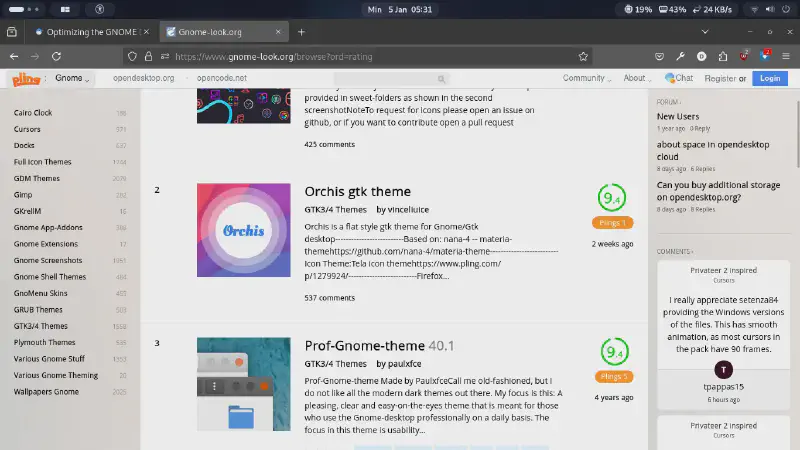
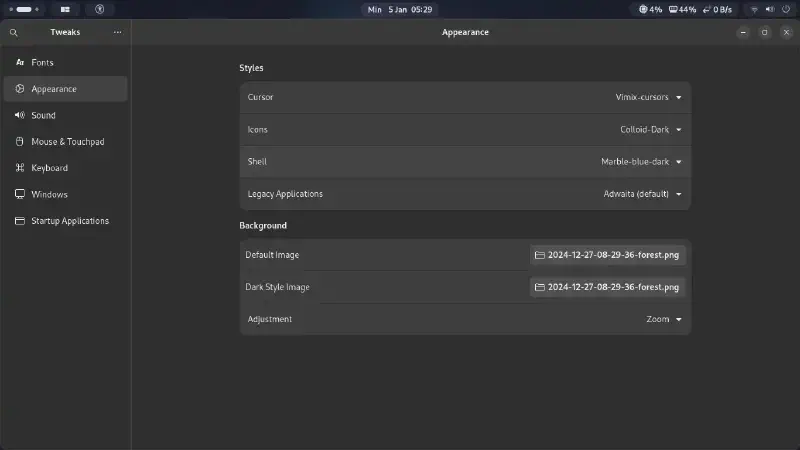
Youtube Demo#
For a quick demonstration of how the installation and usage works, you can watch the video below:
